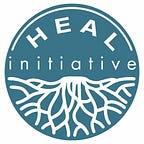Providers with Purpose: Doris Altúzar Magdaleno, MD
Q&A with Doris Altúzar Magdaleno, a physician 2021–2023 HEAL Fellow
Doris Altúzar Magdaleno, MD is a supervisor of the clinical teams that provide care at the clinics of three communities where Compañeros en Salud serves. She was born and raised in different places in Chiapas, Mexico.
Doris is one of the 14 site fellows in the 2021–2022 HEAL Cohort. There are 8 more rotating fellows who are U.S. trained physicians who have a passion for health equity and underserved work. Learn more about the full cohort here.
Doris will serve at Compañeros en Salud in Mexico as a HEAL fellow.
In this Q&A Doris shares more about her personal journey into healthcare in underserved communities and her commitment to serving vulnerable populations.
Can you give a short introduction of yourself?
My name isDoris Altúzar Magdaleno. I am from Chiapas, Mexico and I work with Compañeros en Salud (CES), Partners in Health Mexico as a clinical supervisor. My work is to supervise a clinical team that works in communities where CES serves. My work is in the Jaltenango de la Paz communities and communities of the CES and on the Sierra Madre.
Why do you choose to serve in a rural community and what are some of the challenges in that work?
I am from Chiapas, one of the poorest states in Mexico. As a medical student, I learned about the health system in Mexico and about the procedures or medications that are indicative of some pathologies. But in reality, these practices are not found in the hospital and exist only in the books. Patients die from pathologies that are ridiculous to be dying from such as tuberculosis and other infectious diseases.
I learned about CES in Mexico from the Internet and an activity at school. From that moment I wanted to help underserved populations heal from minor issues that the health system made difficult for our patients. The majority of the population doesn’t know how to read or write, and most don’t have documents and are immigrants.
It’s very heartbreaking that in our state and the health system doesn’t work equally for everyone.
It is very difficult for my children, other children in our communities, and other rural communities that live far from health services, to navigate the health system. Knowing this motivates me to keep supporting patients with accessing health services through CES. I have been working here for two years and a half and love the work I am doing.
Chiapas was and continues to be deeply impacted by the COVID-19 pandemic. What did you learn from this time?
Early in the pandemic, we didn’t have oxygen at CES. Patients were dying from COVID because they couldn’t breathe. Meanwhile, you saw people who could pay for oxygen and have good treatment. At the beginning, this was very shocking to see.
Our patients in the rural communities didn’t want to go to the hospital because they knew that they would die. In the hospital we had nothing to help them. No oxygen or medicines. So they preferred to die in their houses. That was very sad and shocking.
Yet, throughout the months of the pandemic and COVID response, we began to get oxygen and medicines. When community members heard about our respiratory clinic helping COVID patients recover, others started to seek attention in our clinic.
If we didn’t have something in a clinic, we could even transfer a patient to a major facility. It was very hard work, from the beginning to now. Even today, we still don’t have our population fully vaccinated. So we still have COVID cases.
But, It’s much different from a year ago because now we have the trust of our people in the community. The whole experience has been very hard. It was very new for the community and for us as healthcare workers. The community didn’t trust hospitals or doctors.
What I learned is that our system is very unfair. If we want to build a health system or give primary health care in our communities, we have to be there, remain with them, gain their trust, and demonstrate that we are aware of the way they struggle. Their struggles are our struggles.
We have to be there, remain with them, and gain their trust and demonstrate that we are aware of the way they struggle. Their struggles are our struggles.
I think learning from COVID made our system stronger. It made us stronger.
How do you hope to grow as a healthcare provider, working specifically in health equity in rural communities in the next two years?
In the near future, I want to learn more about global health and how to give mentorship to other community health workers and primary care providers in our community. For the next two years, I see myself still working at CES and learning a lot about global health.
I want to learn how to help other women in our community. I am also very interested in the immigration system because a very big part of our population are immigrants. I want to have more context and have the tools to give quality attention to them.
From these two next years in HEAL, I want my work to have excellence, not only clinically, but also with an eye focused on equity and justice.
I want my work to have excellence, not only clinically, but also with an eye focused on equity and justice.
Follow our Medium Publication “Voices From the Frontline” to hear more from our community of over 180 Global Health fellows and alumni and their work in promoting health equity in resource denied communities across the world.
Subscribe to the HEAL Initiative Newsletter and stay up to date with our fellowship program that trains and transforms health professionals who are committed to serving the underserved as a lifelong choice.
